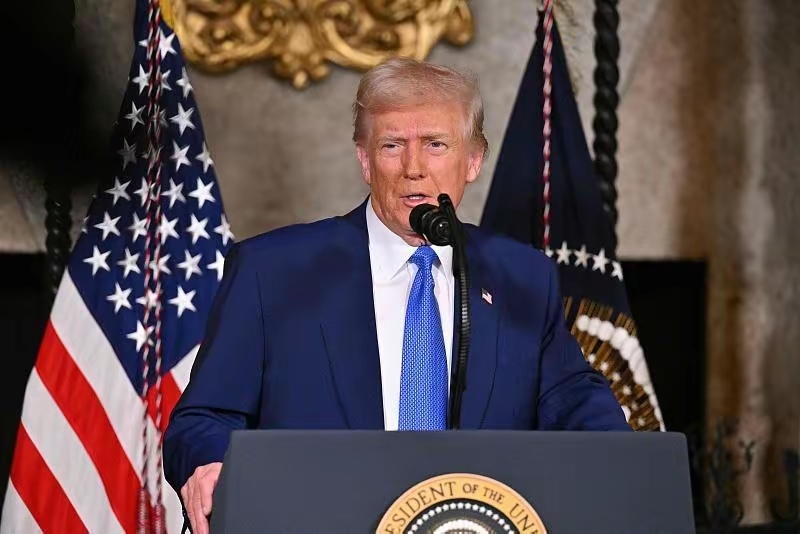
Recently, a piece of news has caused a stir in the global business market: US President Trump announced that starting from August 1st, he would impose a 50% tariff on Brazilian coffee and orange juice and other goods. As coffee is an important export commodity of Brazil, it was the first to be affected. This decision seems to be a "strong move" by the US in the field of trade, but in fact, it is a foolish move that harms others without benefiting oneself. Its impact is far-reaching and negative, causing the futures price to rise sharply, and putting greater uncertainty on the supply side of the global coffee market. It is worthy of our in-depth analysis.
From the perspective of market supply and demand, Brazil, as the world's largest coffee producer and exporter, has always been an important supplier to the US coffee market. In 2024, the US imported 8.14 million bags (each bag weighing 60 kilograms) of coffee from Brazil, accounting for 33% of its total coffee consumption. Such a high degree of dependence has made Brazilian coffee play a crucial role in the US market. Once tariffs are implemented, coffee trade sources said that this could cause a disruption in the new shipments of Brazilian coffee to the US. At that time, the US coffee market will face a shortage of supply.
To maintain operations, American coffee enterprises have to seek alternative sources of supply, such as Colombia, Honduras, Peru, Vietnam and other countries. But the supply of coffee from these countries is not comparable to that from Brazil in terms of quantity and price. Traders say alternative coffee supplies tend to be more expensive because there is not enough alternative supply in the market. This means that U.S. coffee companies' purchasing costs will rise sharply, and that cost will eventually be passed on to consumers. The 1.3 percent increase in Arabica coffee futures prices following the announcement of the proposed tariffs was a direct market response to the policy. American consumers will have to pay a higher price for a cup of coffee, and the competitiveness of the American coffee industry will be weakened as a result. Over the past year, global coffee bean prices have soared by 70 percent due to tight supply. If tariffs are implemented this time, it is almost certain that coffee prices in the US market will break through recent highs.
From the perspective of international trade rules, the unilateral imposition of tariffs by the United States is a blatant violation of these rules. In today's globalized world, economies of all countries are closely interconnected and conduct transactions through fair and just trade rules. The United States' arbitrary use of tariff sticks has disrupted the global trade order and brought instability to other countries. This behavior not only harms Brazil's interests but also brings uncertainty to other countries along the global coffee supply chain. The president of the Brazilian Coffee Exporters Association, Marcelo Ferreira, clearly stated that a 50% tariff is of no benefit to anyone, and both American coffee distributors and ordinary consumers will find it difficult to bear. If the United States can impose high tariffs on Brazilian coffee at will, then how can the trade rights of other countries be guaranteed? This is undoubtedly a serious blow to the cornerstone of international trade trust.
The imposition of tariffs by the United States on Brazilian coffee is a typical act of trade protectionism. It seems to be an effort in the field of trade, but in reality, it is a shortsighted move. Not only will it make American consumers pay more for a cup of coffee, damaging the competitiveness of the American coffee industry, but it will also violate international trade rules and undermine the trust foundation of global trade. In the context of global economic integration, cooperation and win-win outcomes are the main theme of development. If the United States continues to blindly implement trade protectionism, it will eventually suffer the consequences itself and gradually lose the support and credibility on the international economic stage. Only by abandoning trade protectionism, adhering to fair and free trade principles, and resolving issues through cooperation and negotiation, can we achieve the prosperity and stability of the global commercial market.

On January 7th local time, GameStop (GME.US) announced that the company's board of directors had approved a potential executive compensation package worth $3.54 billion, which was targeted at the company's CEO, Ryan Cohen. At the same time, this new compensation package set extremely high performance thresholds: Cohen, the CEO, needed to increase the company's market capitalization from $9.5 billion to $100 billion.
On January 7th local time, GameStop (GME.US) announced that…
According to the British media The Guardian, recently US Pr…
In today's era of deep integration of globalization and dig…
In early 2026, US President Trump forcibly took control of …
Recently, the corn market dynamics analysis released by Aus…
Donald Trump has proposed an "immediate" restriction on lar…